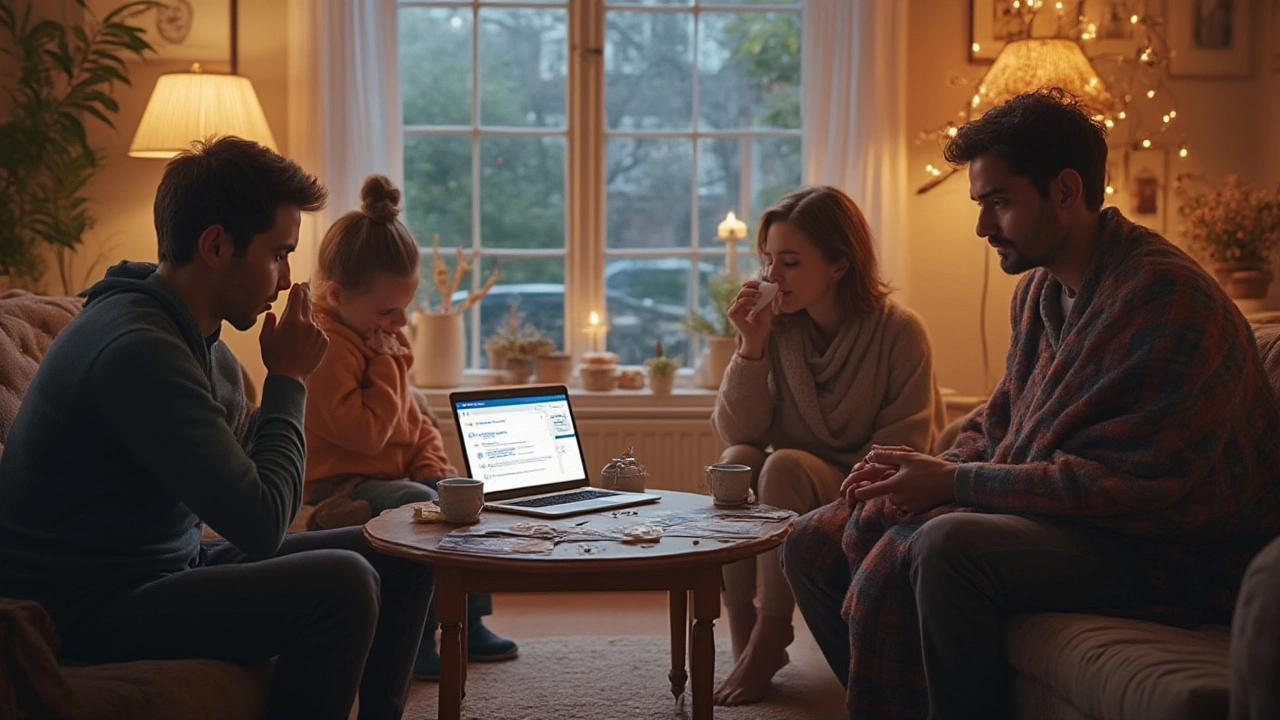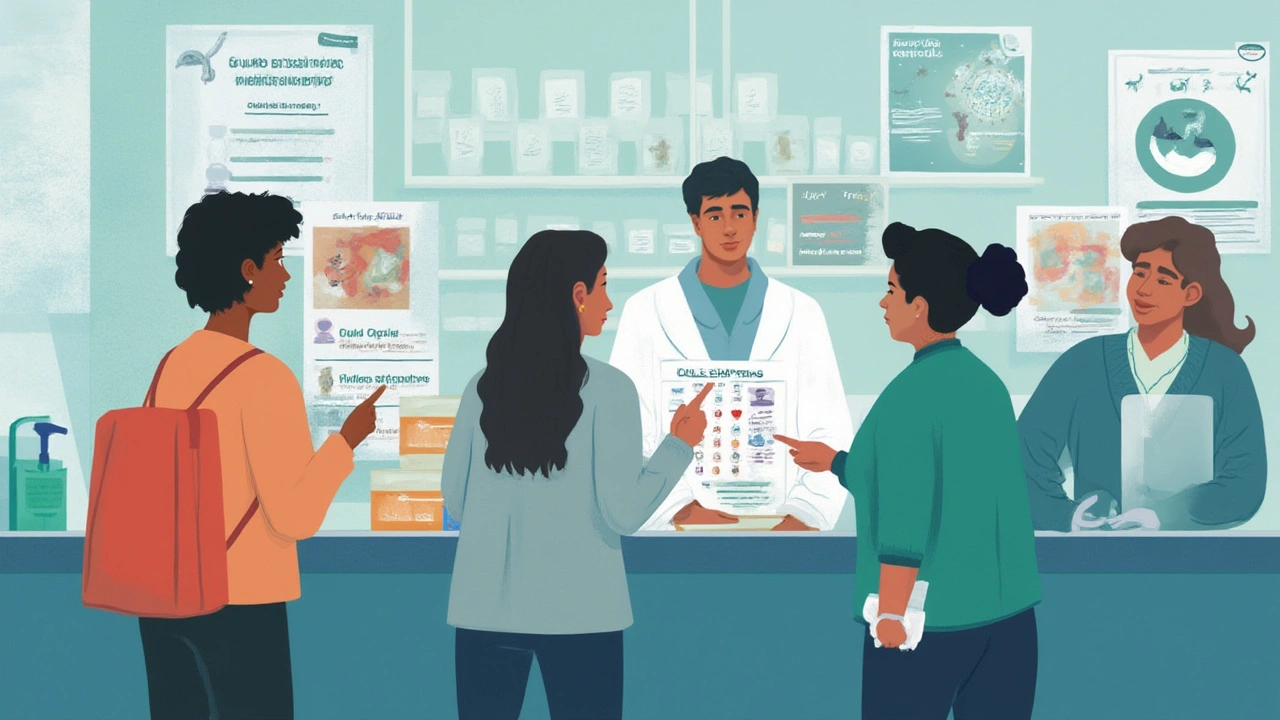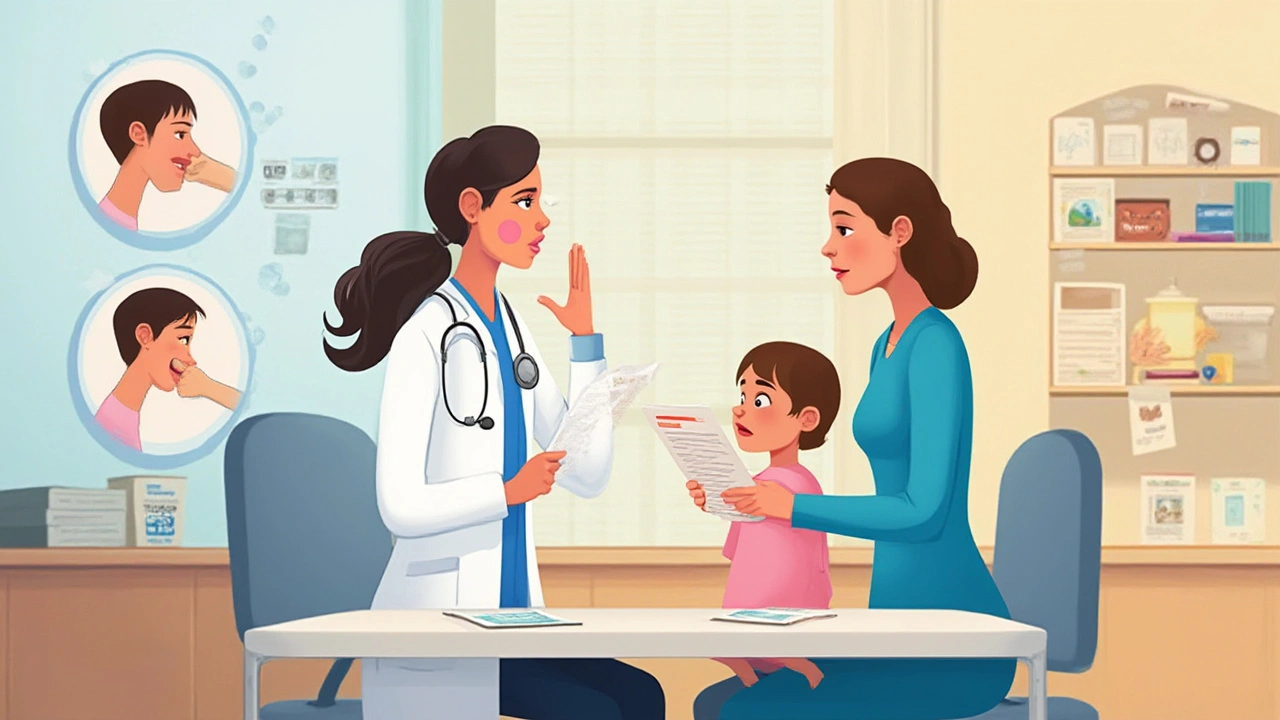
You wake up with a scratchy throat, a bit of a cough, and a sluggish head. First thought? Could be COVID. Could be a cold. Here’s the kicker: you’re not alone. People across Manchester—and let’s be honest, across the world—are still getting tripped up on this question. Despite all we’ve learned since 2020, the line’s still blurry. It doesn’t help that half your mates are back in the office, two are off with something ‘going around’, and even your dog Rosie seems a bit under the weather. Simple cold, or something more?
What Sets COVID Apart from a Cold?
Colds are as old as dirt, but COVID still manages to keep us guessing. On paper, the symptoms share plenty: runny nose, sore throat, cough, fatigue—tick, tick, tick. But it’s the differences that really matter. COVID often brings a fever, body aches, headache, and that classic loss of smell or taste (still a big red flag, though less common now with new variants). You’ll probably remember the scramble for lateral flow tests, peering desperately at faint lines… Just to remind you, NHS data from early 2025 says over 65% of positive cases in the last six months showed a fever, while fewer than 10% of routine colds went above normal temperature. That matters.
Another tell? The timeline. Cold symptoms usually come on gently—think, a tickle, then the sniffles, and it’s out of your system in a week. COVID can hit out of nowhere; one minute you’re walking Whiskers, the next you’re knocked out by a wave of fatigue and chills. It sticks too; people often report feeling rough for 10 days or longer, while a cold fizzles out much faster. If your cough won’t quit or your energy’s gone for more than a week, ask yourself: am I dealing with more than a simple cold?
Let’s talk about the wild card—gastro symptoms. Classic colds rarely give you tummy trouble, but COVID sometimes does. Nausea, diarrhoea, or even unexplained aches might point away from a basic rhinovirus (the bug behind most colds). The University of Manchester’s infectious disease unit reported, after tracking 2,300 local cases this spring, that 23% of COVID patients had digestive issues, while those with typical colds almost never did.
Here’s a quick side-by-side for clarity:
| Symptom | COVID (common) | Cold (common) |
|---|---|---|
| Fever | Yes | Rare |
| Headache | Often | Sometimes |
| Loss of smell/taste | Possible | Very rare |
| Runny Nose | Sometimes | Often |
| Sore Throat | Common | Very common |
| Fatigue | Severe | Mild |
| Gastro issues | Occasionally | Rare |
Not every box needs to be ticked, but if you’re racking up more on the COVID side—or something feels ‘off’ or worse than usual—it’s worth paying attention.
Testing: Still Worth It?
Lateral flow tests are as familiar now as tea mugs in British homes. But should you still bother? If you ask me, if you’ve got classic COVID symptoms—that sudden fever, a cough that gnaws at your sleep, or loss of smell—test. Tests are cheap again this year, sometimes even free at pharmacies. According to the latest NHS advisory, testing is encouraged after symptoms start, especially if you’re around older folks or anyone with a weak immune system.
One quick tip: timing matters. The virus takes time to show up in your nose, so if you test too early (first 24 hours of symptoms), you might get a false negative. The sweet spot is about 2-4 days after you feel ill—this is when viral loads usually peak, so your test is more likely to give a true reading. If your first test’s negative but symptoms are roaring, retest a day later. Keep your flatmates safe—test before meeting up, especially if someone’s vulnerable.
Don’t forget PCR tests. They’re less common for everyday colds, but still on hand for NHS staff or those who keep testing negative but feel really rotten. PCRs can spot COVID even with low viral loads, and they’re better at avoiding dud results. If you’ve had contact with a known COVID case, or if a test’s suggested by a GP due to risk factors, don’t shrug it off. As much as the home tests are handy, they’re less accurate than PCR. If you’re looking after an elderly parent or anyone with health issues, tests aren’t just personal—they protect your whole circle.
Home test or PCR, if it’s positive, lay low. Cancel dinner, cancel the match, and even keep Rosie at a distance (the rare dog has tested positive, but don’t panic—she’ll be fine). Self-isolating isn’t mandatory anymore, but it’s the decent thing to do. No one wants to be ‘that person’ who gave half their mates a viral gift. The new advice is to avoid crowds for at least five days, but most people err on the side of caution, especially if symptoms linger.

Managing Your Symptoms at Home
If your test’s negative and you feel mostly okay, classic cold remedies will do the trick. Grab the paracetamol, rest up, and watch something rubbish on telly. But if it’s COVID, don’t skip the basics: rest loads, drink more water than you want to, and, yes, use paracetamol or ibuprofen for fevers and aches. Skip strenuous exercise—even if you’re desperate for a run—and keep hydrated. COVID can spark unexpected dehydration, and it’s often behind the headaches and dizzy patches people report.
Vitamin C and zinc are still debated, but hot honey and lemon never go out of style. The odd spoon of honey can soothe a cough, too. If your chest feels tight, try steam (stand in a steamy bathroom, don’t burn yourself!). NHS still says home remedies help symptoms, but not the virus itself. Use over-the-counter stuff for blocked noses, but keep tabs on your temperature. And don’t overdose on anything—read those labels.
One odd side effect of COVID is joint and muscle pain that lingers for weeks. Gentle stretching can ease stiffness, and the Manchester Post reported local fitness instructors with mild COVID often advise yoga or light mobility work once symptoms improve—but only if you’re not struggling for breath. Listen to your body.
If you’re caring for someone vulnerable—say, a gran down the street or your housemate with asthma—mask up at home, open windows, and clean high-touch spots (door handles, light switches) at least once a day. NHS tracking showed homes where simple ventilation and cleaning were routine saw fewer household transmissions during the big spike last winter. Not foolproof, but every bit helps.
Don’t forget mental health. The isolation, worry, and plain boredom of sitting at home can wear you down. Call a mate, video chat, cuddle your pets (unless you’re coughing all over them, eh Whiskers?), and don’t guilt yourself into doing chores. Whether it’s a cold or COVID, rest is your main job. One last tip on home care: if you do start to feel worse—breathing trouble, chest pain, or persistent fever—call your GP. Don’t tough it out in silence.
Watch Out: When Do You Need Medical Advice?
Most people ride colds out and recover quickly. But COVID, even in 2025, can turn nasty. Watch for symptoms that get suddenly worse after a few days—cranking fevers, breathlessness (struggling to walk upstairs, talking with pauses), or confusion. If you or someone you’re looking after is at higher risk (over 65, diabetes, heart conditions, etc.), don’t gamble. Call 111 or your GP for advice.
Sometimes it’s hard to judge. A little breathlessness is common with any chest bug, but if you feel like you can’t finish a short sentence without pausing, your lips look a bit blue or your heart’s racing, don’t wait. The same goes for unexplained chest pain, fainting, or coughing up blood (rare, but it happens). NHS data for the first six months of 2025 shows emergency respiratory admissions are still mostly among high-risk groups, but healthy people aren’t immune to severe or long COVID.
Children are a special case. You know your kid better than anyone—if they’re listless, not drinking, crying with a high fever, or breathing fast, don’t chalk it up to 'just a bug.' Same goes for elderly relatives—often, COVID brings confusion or falls instead of classic symptoms. New confusion, difficulty waking up, or sudden drowsiness in anyone frail is reason enough to call for help. Trust your instincts.
Don’t wait for things to get dramatic. A simple video consult can keep you out of waiting rooms, and most GPs in Manchester now offer quick calls for respiratory worries. Keep lists of your symptoms, note when things started, and mention any high risk factors. GPs appreciate details, and you’ll get better advice. If it’s urgent, you know the drill: ring 999.

Protection and Prevention: What Still Works in 2025?
Vaccines changed everything, but they didn’t wipe COVID out. By 2025, over 90% of people over 18 in the UK have had their shots, but boosters matter—especially for folks over 65 or anyone with long-term health issues. Don’t skip your annual jab if offered; protection matters even if you’re young and fit, especially as variants keep mutating. NHS figures show booster uptake was crucial this spring: hospital rates were three times lower in those fully boosted compared to those skipping their top-ups.
Washing your hands works as well in July 2025 as it did when soap was ‘the new gold’ in early 2020. You don’t need antibacterial stuff—just proper soap and water, for 20 seconds after public places, before eating, or after cuddling your pets (even Rosie gets a scrub if she’s been out running through crowds at the park).
Masks are less common, but if viral spread picks up (watch the local news), keep a few at hand—especially in crowded spaces or hospitals. Ventilating rooms is easy and pays off: data from the Health Security Agency showed classrooms and offices with open windows saw 30% fewer outbreaks this past school year.
Big night out planned? Test before you go, especially if you feel rough. The main thing—if you feel rubbish, stay home. It’s never been more normal to skip plans because you’re sick, so don’t push through and be the reason for a mini-outbreak at the club.
If you’re sick, cover your mouth when you cough (elbow, not hand!), bin used tissues fast, and don’t share food or drinks. Visit mates in hospital only if you’re symptom-free. The old etiquette’s back in fashion: “Sorry, I’ll see you next week—I’ve got the sniffles.” It works.
Stay wise. Keep resting, keep washing, and treat your symptoms right. Your friends (and Rosie and Whiskers) will thank you.